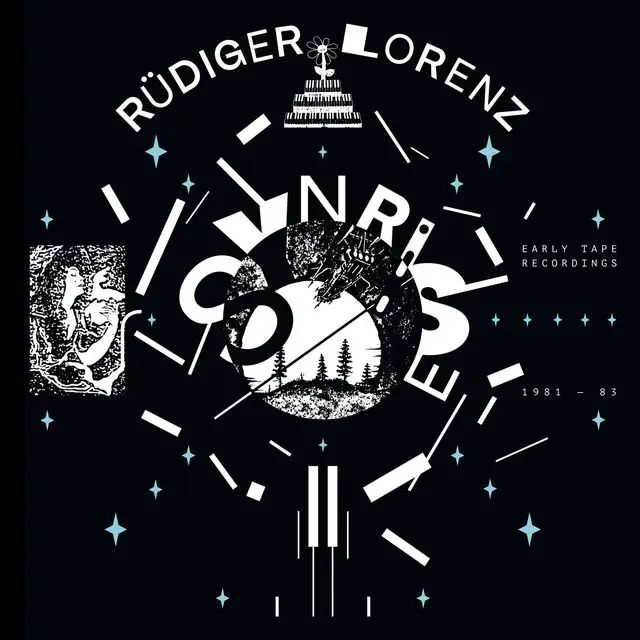Synrise - Early Tape Recordings 1981-83 - Black LP
Artist
Format
Genre
Label
Release Date
01/31/2025
Store
Price
Catalog Number: BB474LP
Color: Black
Format: LP
UPC: 4015698351415
If you're already aware of Rudiger Lorenz, chances are you washed ashore on 'Southland', his cult kosmische curio graciously reissued by the ever-benevolent Bureau B in the middle of the last decade. Either that, or you're one of the few hundred electronic music obsessives who encountered his work the first time round, giddily grabbing up the eighteen cassette, vinyl and CD releases the prolific part-timer delivered DIY style on his Syntape and Syncord imprints between 1981-1998. I say this because despite a catalogue both copious and singular, and a renewed interest amongst the switched on and tuned in since his premature passing in 2000, Rudiger's reception has remained sadly subterranean - another example of audio inequity. As such, it falls to 'Synrise', attentively assembled by Rudiger's son Tim, to shine some rightful light on this unique talent. Based in Ingelheim on the south of the Rhein, Rudiger was a pharmacist by trade, electing to spend his spare time and money on his musical monomania. Given the medicated nature of his stark and other-worldly synthscapes, one could be forgiven for presuming a predilection for the prescription pad, but in truth Lorenz was a teetotaller with an insatiable sonic thirst. This was the owner of 10,000 records and 38 synthesisers - a man who sang Kraftwerk's fahrn fahrn fahrn auf der Autobahn as a nursery rhyme to a tiny Tim while he sat between the blinking sequencers pretending to be a space man. Although Rudiger impressed as a member of a local beat group in the seventies, growing exposure to the likes of Neu!, Tangerine Dream, Reich and Riley pushed him towards the electronic and experimental, a style more suited to his solitary temperament. Unsurprisingly for a man who made eighteen solo albums around his day job, Lorenz was something of a loner, though it's hard to hear that through the emotional resonance of his releases. His search for sonic expression led him to overcome his lack of electrical knowhow, boldly soldering on to create organs, effects units and self-built modular systems, each in service to his specific sound. What then, specifically, is the sound of 'Synrise'? Selected from his first four releases, 'Queen of Saba' (1981), 'Silver Steps' (1981), 'Wonderflower' (1982) and 'Earthrise' (1983), this septet boasts sci-fi anthems and sine wave requiems, nebulous cosmic collages of snapping rhythm boxes, gurgling sequences and synthesised choirs. "38-17-34" opens the collection with an insistent bassline and detuned chime, as the titular timecode is repeated by a disembodied vocal. Its main motif recurs in a variety of different tones, each lending a different energy or mood. Driven by a mechanical polyrhythm and insectoid hats, "Chamomilla Sabinae" submerges you in immersive repetition with only the vocal outburst of the outro, screamed through a Space Echo, able to break the trance. The sprawling "Dreaming Of Saba" speeds into the outer rim, its fugue-like opening, built around moody synth strings and a plangent lead line, accelerated across the galaxy by a succession of warp speed sequences, before the engines abruptly cut out and our craft drifts through the disquiet of sparse interlude "Hmmm". From there, things only get stranger. "Independance" opens with a robotic Star Spangled Banner and a recitation of Jefferson's declaration (vocoded and circuit bent (un)naturally), eventually evolving into a triumphant march of stately drum box and dreamy chords. "Promis of Sigma" balances melancholy and optimism in its ringing melodies and heart-rending chords, while "Anigre" ends the journey with Utopian grandeur, an electronic Elgar interrupted by a alien broadcast. Though originally released across four different cassettes, these seven tracks all belong to the same sonic universe - just not the universe we're living in










